Here, we strive to honor the generosity of the living land, and to sustain ourselves in reverent reciprocity with everything that makes our lives possible. Through all of our classes, at each location, we teach practical skills for living with the land and cultivating a more handmade life. Plus, we foster inspiration and connections among our community of students, instructors, and staff. We’re fortunate to be able to provide beautiful, functional, natural settings for each of our classes. Some subjects require certain types of landscapes or infrastructure, and we pair classes with the most appropriate location. At every one of our campuses you’ll have access to: clean, potable hot and cold running water, dry space in case of rain, an outdoor kitchen for preparing food, clean and inviting outhouses, and lots of inspiration. The Sanford Way and Paint Fork campuses are managed by Wild Abundance. The other campuses are managed by sister organizations. Home of the Women’s Rewilding Retreat and the Wildcrafted Apothecary Class Wild Abundance’s original home campus on Sanford Way in Barnardsville, NC boasts many gorgeous and functional features, all crafted lovingly by our staff and our community of students, friends, and neighbors. Wild Abundance had previously been guested at various sites, and began running classes at Sanford Way in 2011. We’ve got a bountiful and beautiful leaf-shaped organic permaculture garden; a food forest including delectable perennial beds; a log cabin built out of trees from our own growing forest with a light straw clay addition; a cob oven; an outdoor classroom/wood shop topped with solar panels, and a stunning wattle and daub outdoor kitchen and classroom featuring a handmade sun motif sculpted out of clay by the hands of our students. This campus is tucked cozily within a small neighborhood on a narrow gravel road. It’s a year-round home to our director, Natalie Bogwalker and her daughter. It takes about 25 minutes to get here from Asheville, NC. We host our Women’s Rewilding Retreat and Wildcrafted Apothecary Medicinal Herbs Course at Sanford Way, with portions of each class taking place in the field. Student’s in classes hosted at the Sanford Way Campus are welcome to camp onsite and use the facilities during their class. Home of our Carpentry and Tiny House Building Courses As our classes have grown, we’ve been fortunate to be able to expand into more space to host our growing community. In spring of 2022, we purchased a beautiful nine-acre creekside property just a few miles from our Sanford Way campus, on nearby Paint Fork road in Barnardsville, NC. So far, we’ve been very busy there. With the guidance of one of our awesome instructors, we engaged in a participatory design process and came up with a master plan for the campus. Then, we got to work implementing it. Between the tireless work of the site crew, community work parties, hiring out some jobs, and the contributions of students, we have refurbished the barn and added workshop spaces off of it, built a humble office, maintained the well and installed water lines, constructed a dramatic and beautiful timber framed pavilion to host classes, installed a septic system, demolished a collapsing house, created a parking lot, built a permitted outhouse, created a lovely campground with flat tent sites, built trails, and created tall covered space in which to hold our tiny house building classes. We’ve been hosting campers and classes at the Paint Fork campus since May of 2022. Our Women’s Basic Carpentry, Women’s Advanced Carpentry, All Genders Basic Carpentry, Tiny House Building Workshop, and 4-Month Hands-On Carpentry Program all take place at the Paint Fork Campus, along with various primitive programming throughout the year. Student’s in these classes are welcome to camp onsite and use the facilities during their class. Home of one portion of the Tiny House Building Workshop This is the workshop and business-home of one of our key instructors for the Tiny House Building Workshop. It’s a half-acre facility with a 4,000 square foot covered workshop right in downtown Marshall, NC. Unlike our other campuses, Nanostead is not a rural homestead or farm, but rather is a bustling tiny house workshop, within walking distance to local restaurants, bars, and the other artsy attractions of quaint Marshall, NC. There is no camping available at Nanostead, but tiny house students are welcome to camp at the Paint Fork Campus, whether they choose to work on the build at Paint Fork or at Nanostead. Nanostead is about 25 minutes from downtown Asheville, and 30 minutes from our Paint Fork campus.
This beautiful farm and workshop is home to Brian Snedecker, instructor for our Timber Framing class along with his family and business, plus their milk cow, many goats and chickens, and a couple of dogs. It’s just down the road from our Sanford Way and Paint Fork campuses in Barnardsville, NC. This land features a gorgeous 2,000 square foot timber framed barn/workshop where most of class takes place. Along with the barn, this campus has a sunny open-air work area with stunning views of the mountains and valleys of this incredible region. Ivy Creek Timber Frames is about 30 minutes from Downtown Asheville. Camping at Ivy Creek Timber Frames is limited. Students without vehicle access are welcome to camp onsite; those with transportation will camp at the Paint Fork Campus and commute a few miles each day to Ivy Creek Timber Frames. Home of our Permaculture Design Course We’re delighted to partner with the School of Integrated Living and Cooperate WNC to collaboratively host our Permaculture Design Course at Earthaven Ecovillage. Many of the principles of permaculture are on display in the forests, gardens, fields, and infrastructure at Earthaven. It’s an amazing place to learn about both the techniques and technologies of more sustainable living, along with the human dynamics and systems required when cultivating long-term communities. Staying and learning at Earthaven is an adventure! Earthaven is off-the-grid, they derive electricity from hydro (water) power, solar (sun) power, or a back-up gasoline-powered generator, and their water from on-land springs and wells. Classes take place in the community’s beautiful, hand-built Council Hall, as well as under outdoor canopies and in the woods or on farms. As you explore the campuses, you may find yourself walking along footpaths and up and down rustic steps made of split logs and packed earth, or strolling through the woods. We encourage you to wear sturdy, comfortable shoes in order to navigate the terrain. Additionally, bringing a flashlight or headlamp will be useful if you plan to camp on-site. Wifi and refrigeration are not available at most of our campuses (exception being the Paint Fork Campus), and most, not all cell phones will get service here. We invite you to enjoy a bit of unplugging when you come learn with us. We try to make classes accessible to students of varying physical abilities. However, it’s important to note that our mountain campuses are not wheelchair accessible and may pose some difficulty to those who are not able-bodied. If you’re unsure about navigating the terrain, please reach out to admin@wildabundance.net. Our land-based living campuses continue to grow, change, and thrive. Indeed, the loving contributions of each and every person who comes here adds to the beauty and richness of this school. We’re grateful to all of the students, friends, staff, and neighbors who share their gifts and love with Wild Abundance. Our hope is that the school will, in turn, change the lives of those who come here. As visitors leave their mark on our campuses, so will these lands leave their mark on everyone who travels here. We consistently receive feedback from students that the physical spaces where our classes take place are a significant part of their experience. While it’s possible to teach carpentry, for example, in a sterile-feeling shop or warehouse, we don’t go that route. Instead, we’ve crafted outdoor classrooms where students can breathe fresh air and witness the beauty of these mountains as they’re learning new skills. May your experience at one of our campuses inspire a deep reverence for the sacred and ancient relationship between human beings and the rest of the living Earth. One aspect of our unconventional campuses that catches some folks off-guard, is that we encourage students to “pee near a tree.” This is because outhouses function (and smell) best as dry moldering systems; too much urine brings imbalance. While this is novel to many, students often end up enjoying the liberating and comfortable practice, and the quiet moments in the forest. Nobody is required to pee outside if they don’t want to. If you are more comfortable with the clean and cozy outhouse, please utilize it. To learn more about the benefits of peeing near plants, please check out our blog on using urine as a fertilizer.Wild Abundance is more than a school. It’s our attempt to create the kind of world we want to live in.
Our campuses are nestled in the verdant folds of the ancient mountains of Shaconage (Sha-Kon-O-Hey, Cherokee language), the Land of Blue Smoke, known in English as the Southern Appalachians. They’re all within 25-45 minutes of the town of Asheville, NC.
Read our Land Acknowledgement here.
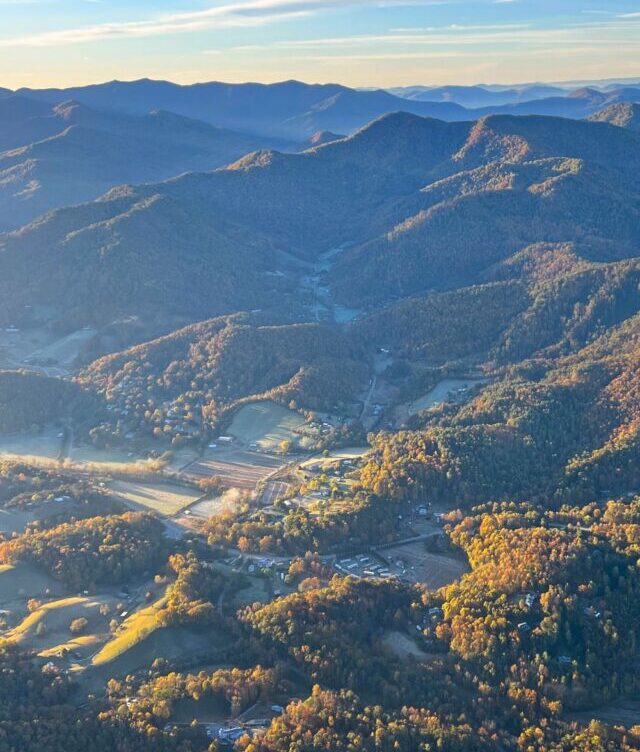

Get to know our beautiful campuses, near Asheville, NC
All in-person classes take place safely outdoors, with appropriate shelter in inclement weather to keep you dry.
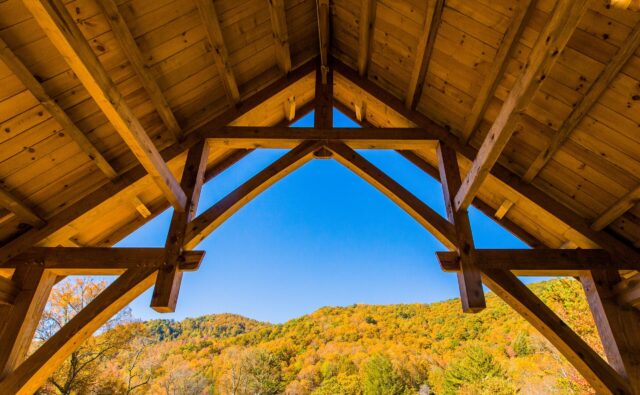

Sanford Way
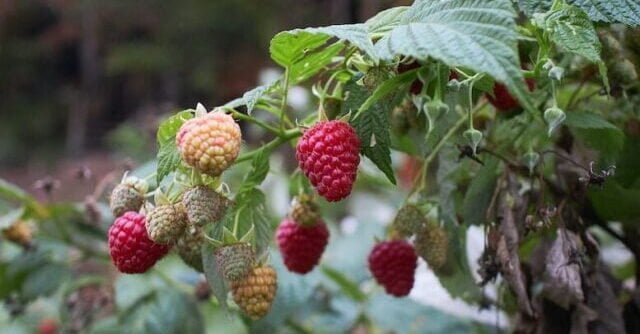

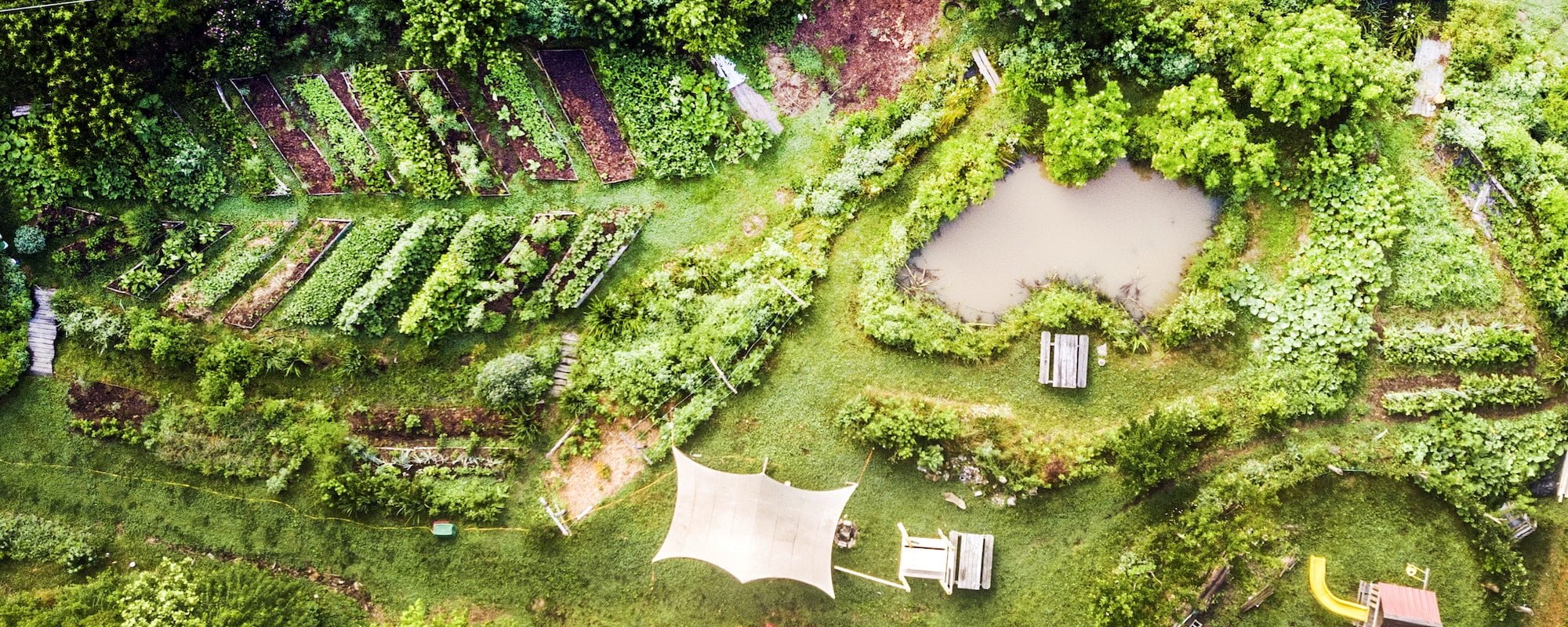

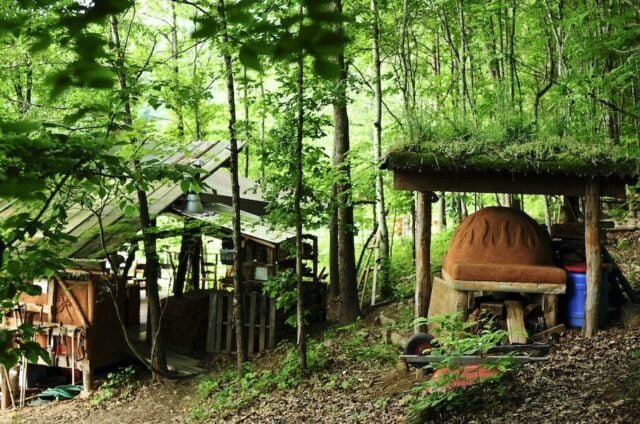

Paint Fork
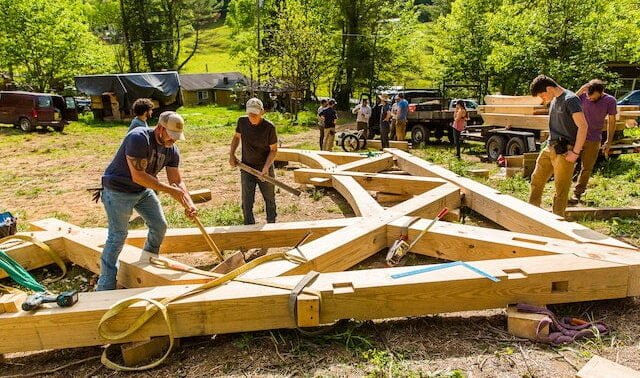

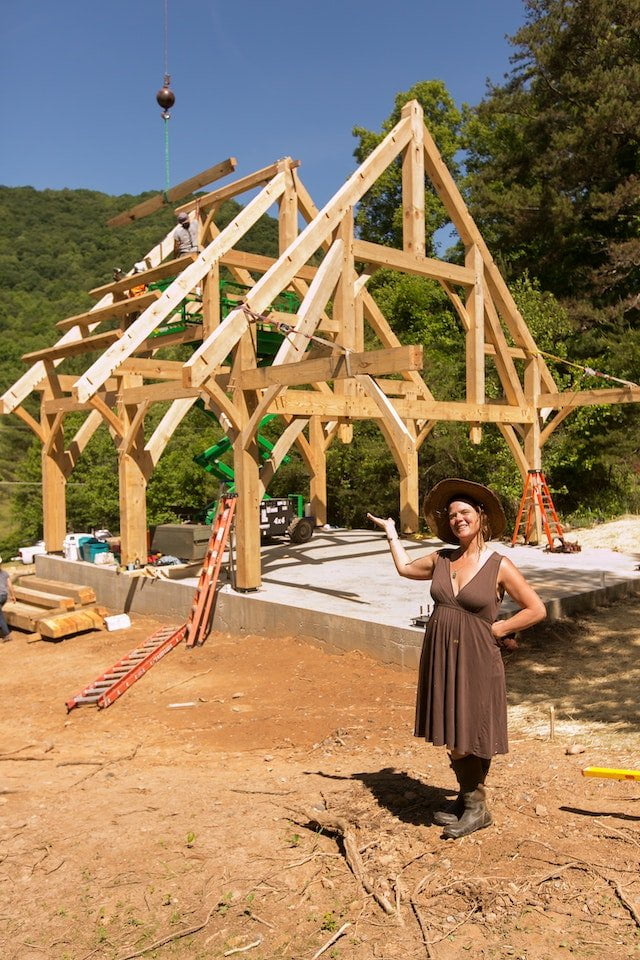

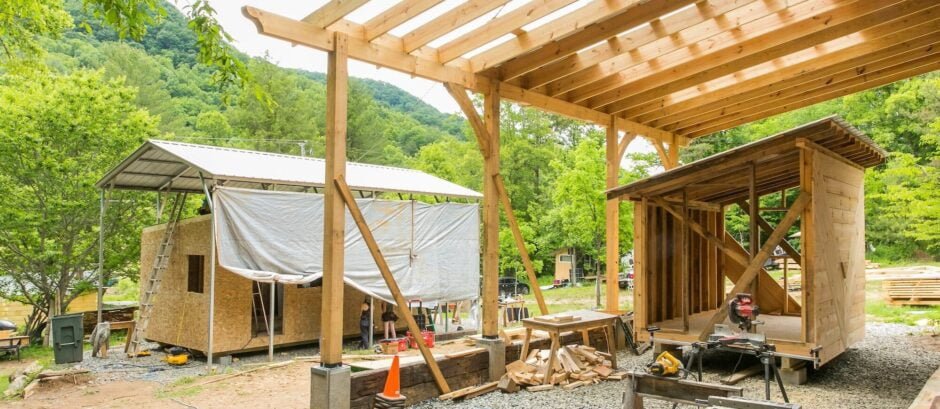

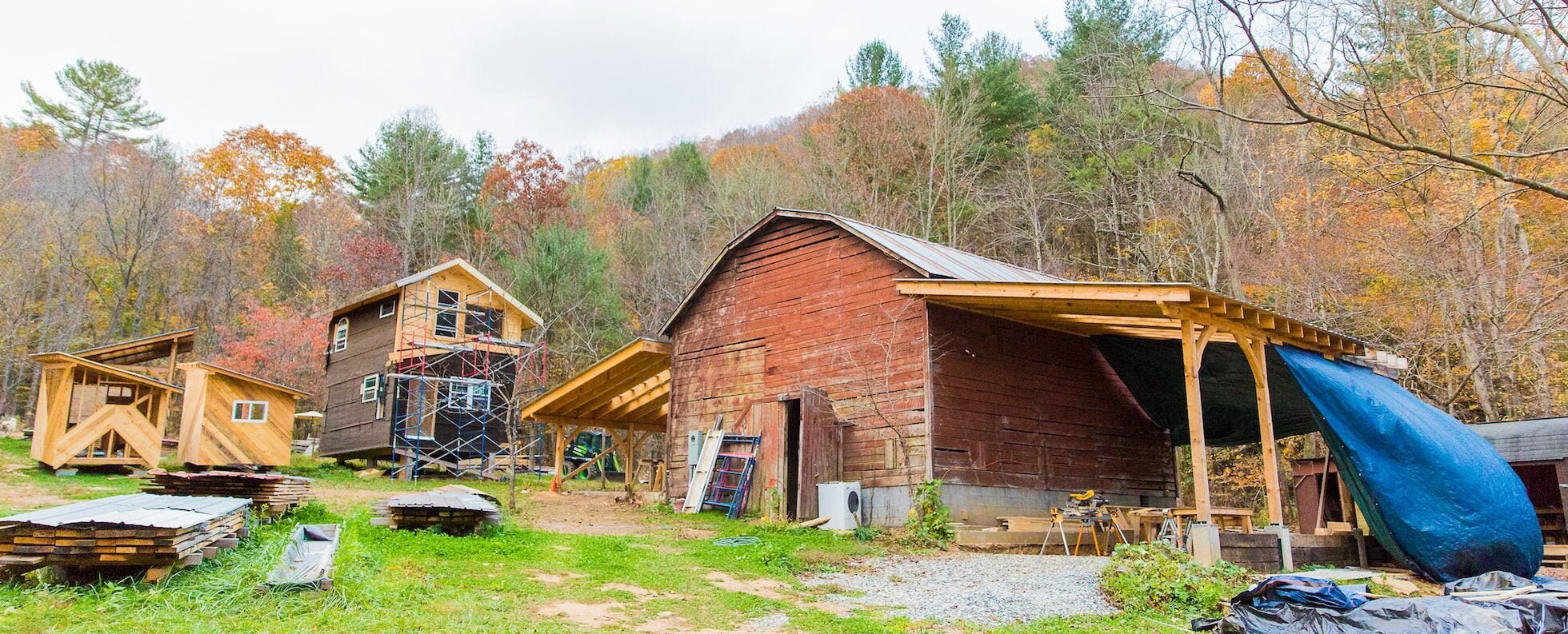

Nanostead
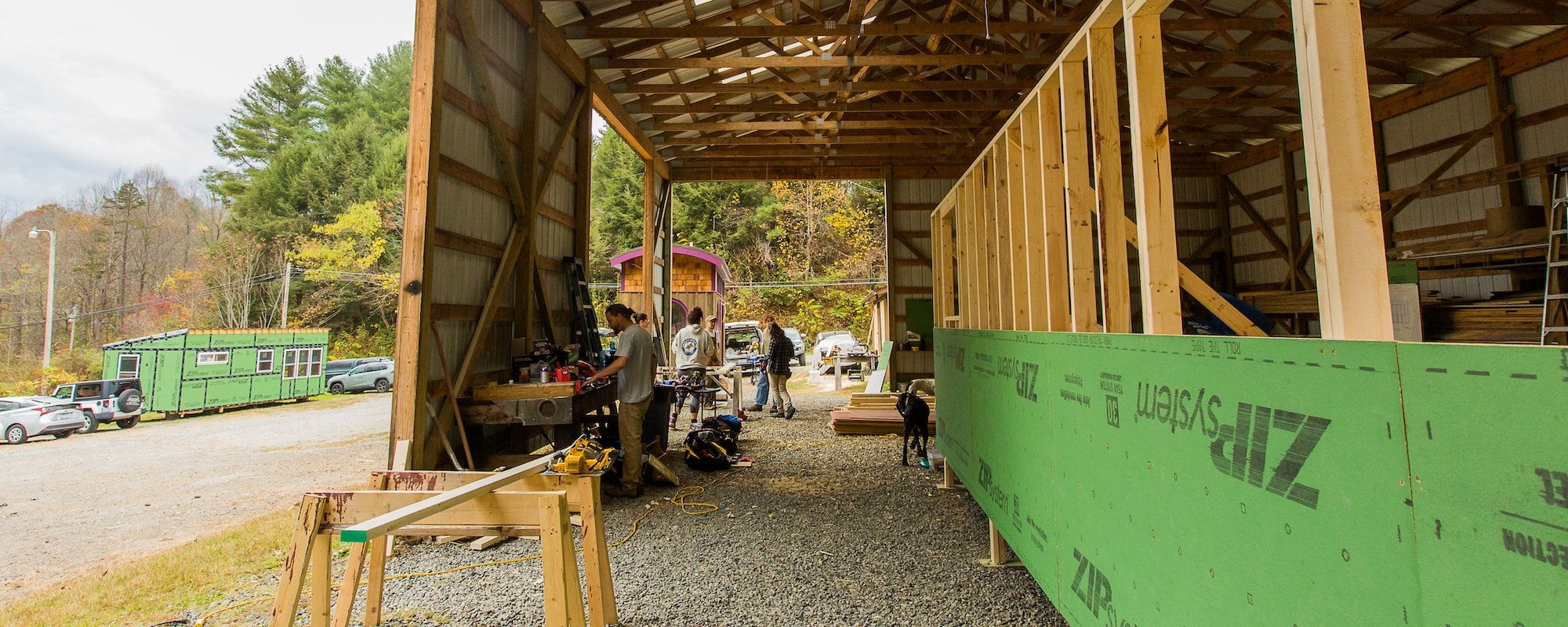

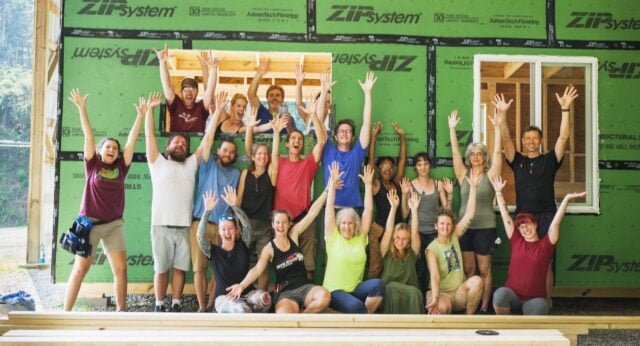

Ivy Creek Timber Frames
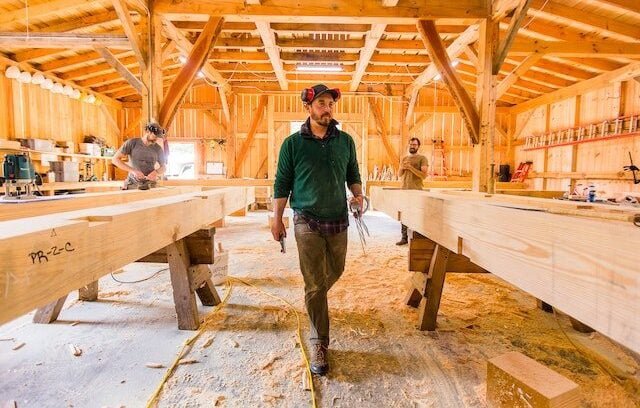

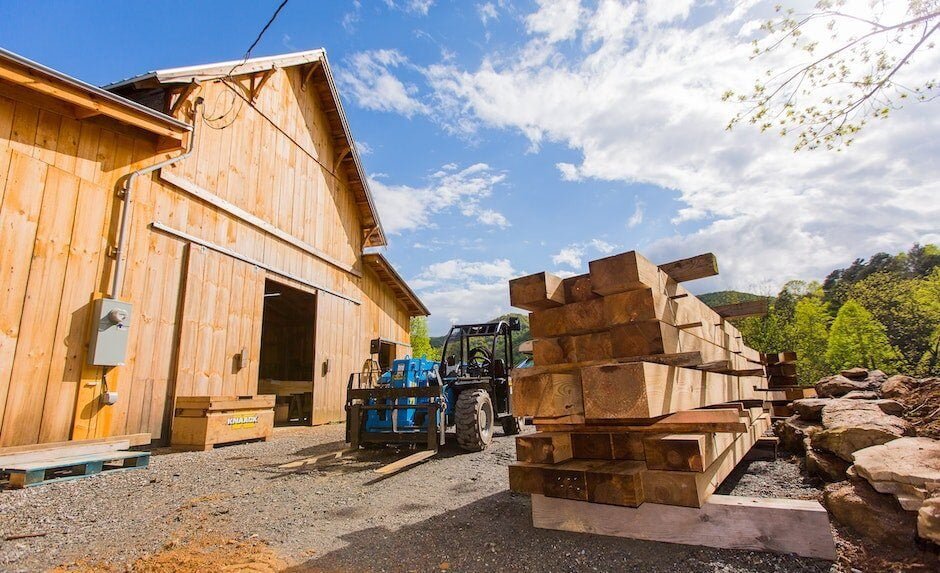

Earthaven Ecovillage
This permaculture-based community offers a unique living classroom where students directly engage with regenerative food systems, eco-infrastructure, and the intimate experience of community living.
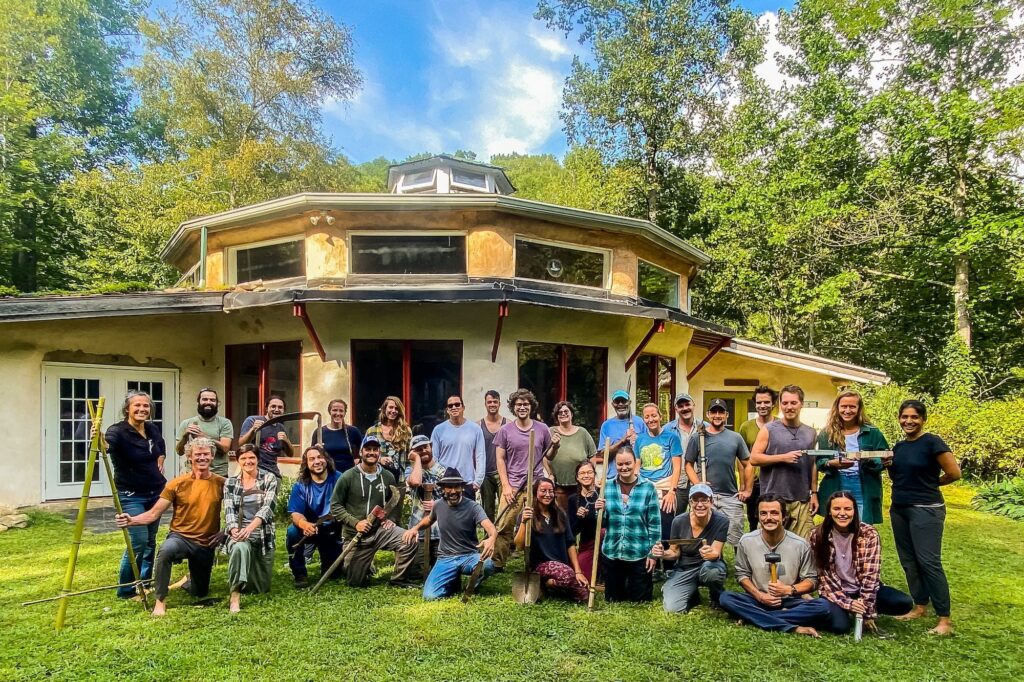

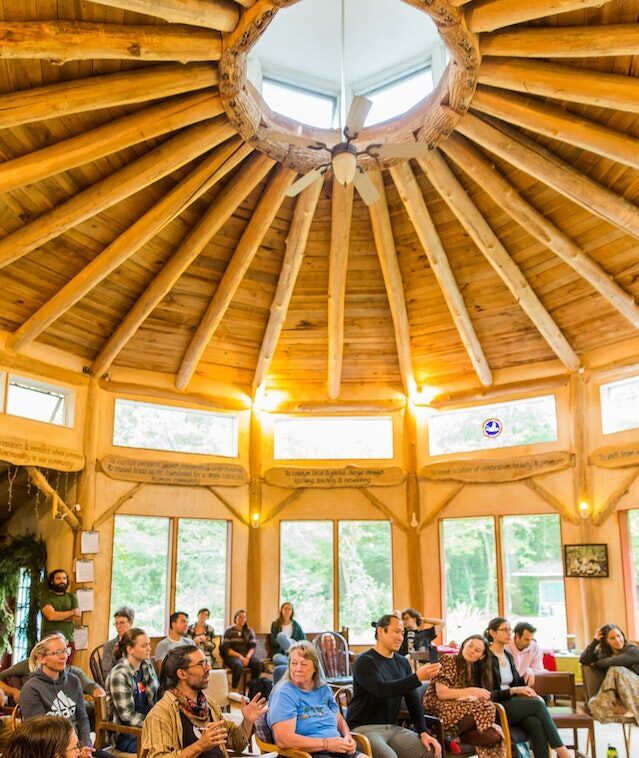

Each of our campus locations provides an opportunity to learn the subject matter, and also to witness different ways that human beings are integrating their lives into the landscape.
Our Campuses are unconventional
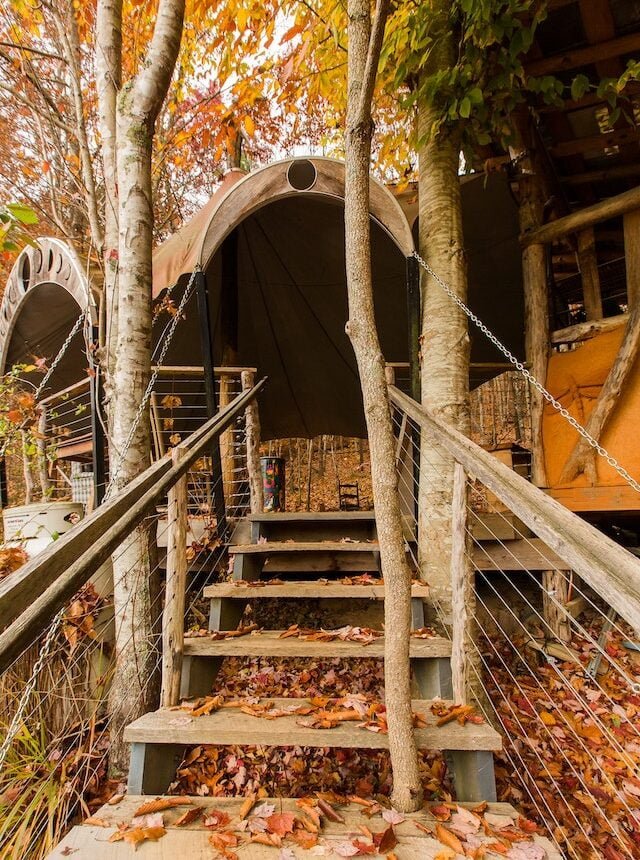

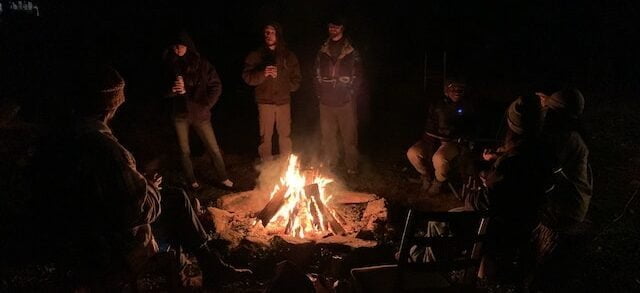

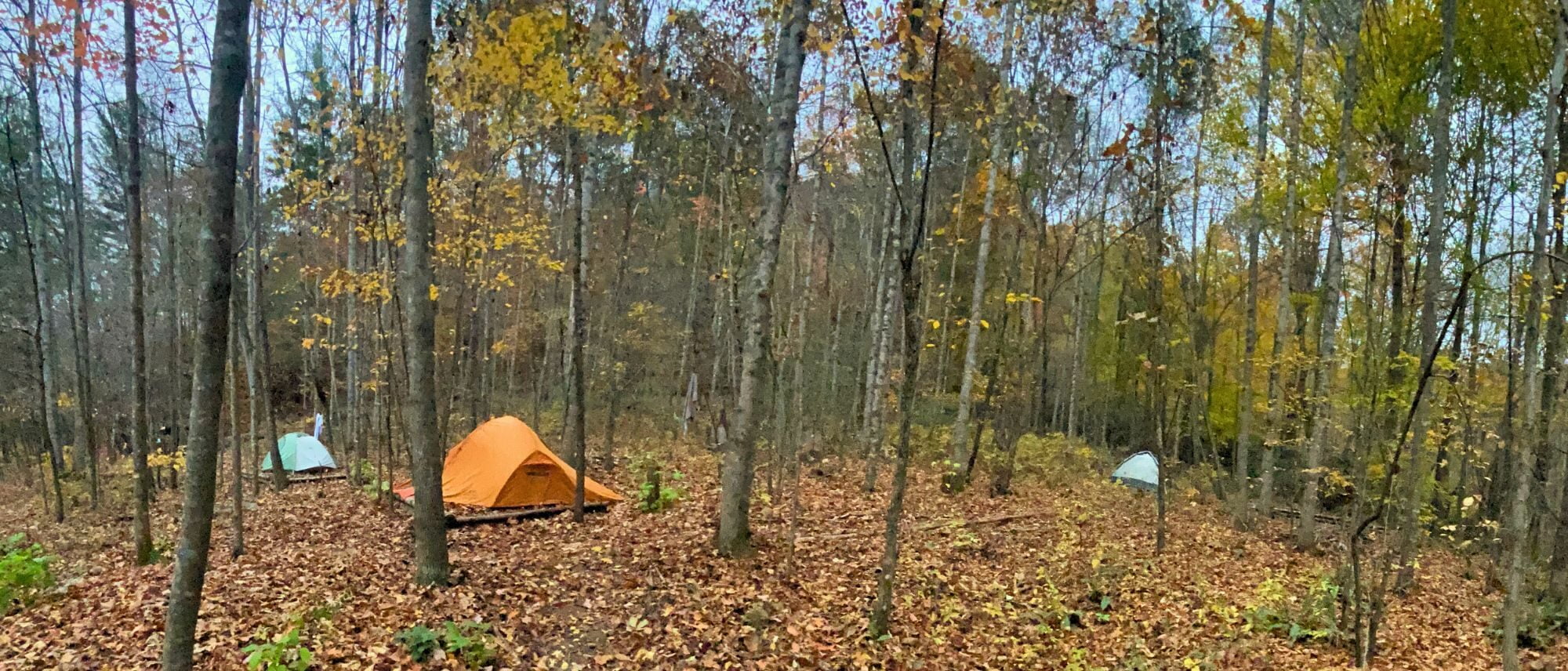

Learning with the landscape
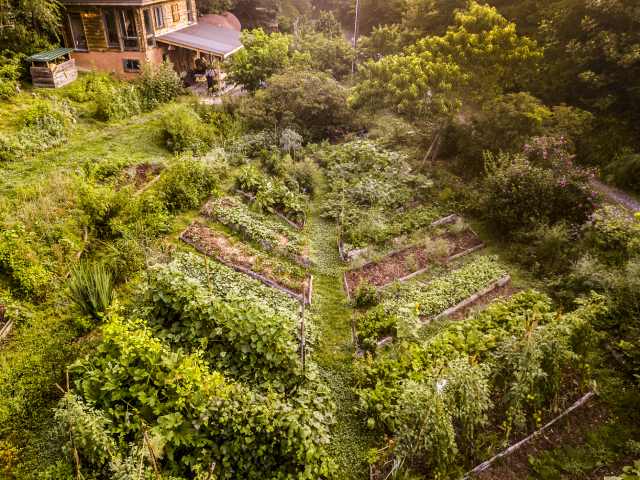

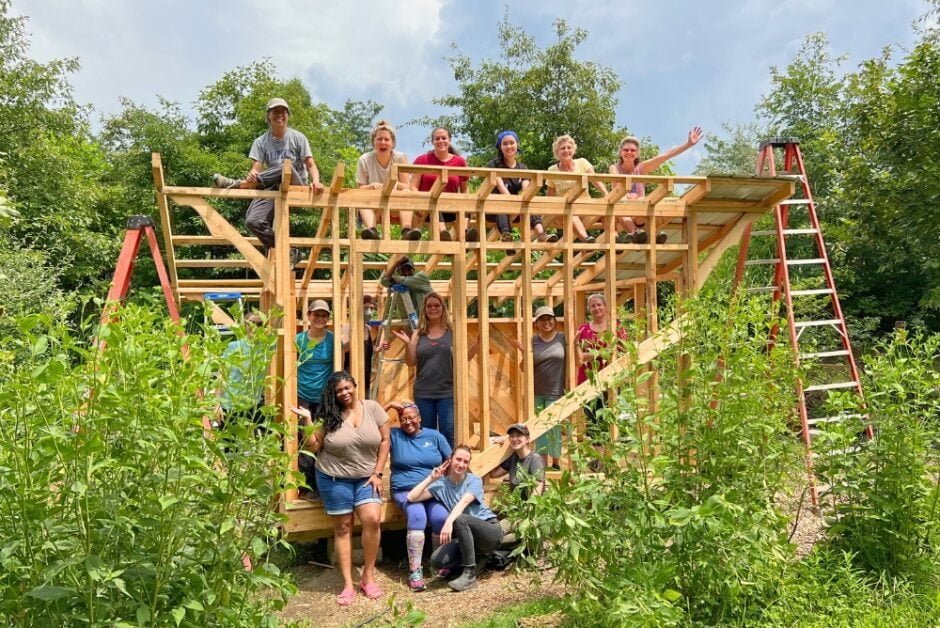

You’ll get to pee near a tree! (if you want to)
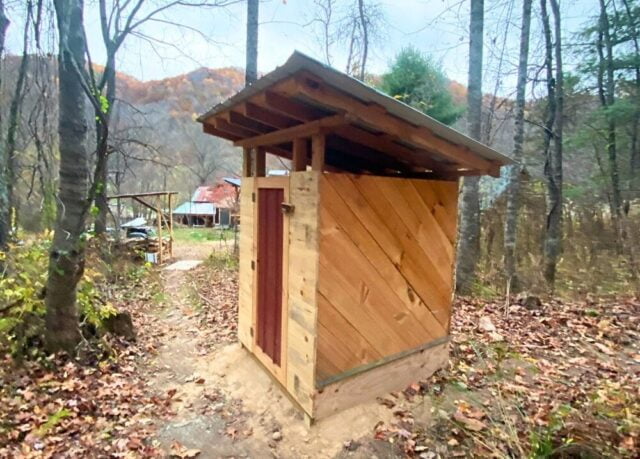

“This school deeply inspires students to dream about what is possible. By being here, I’ve learned ethical and sustainable living is feasible in beautifully simple ways.”– JJ, Gardening and Building Apprentice
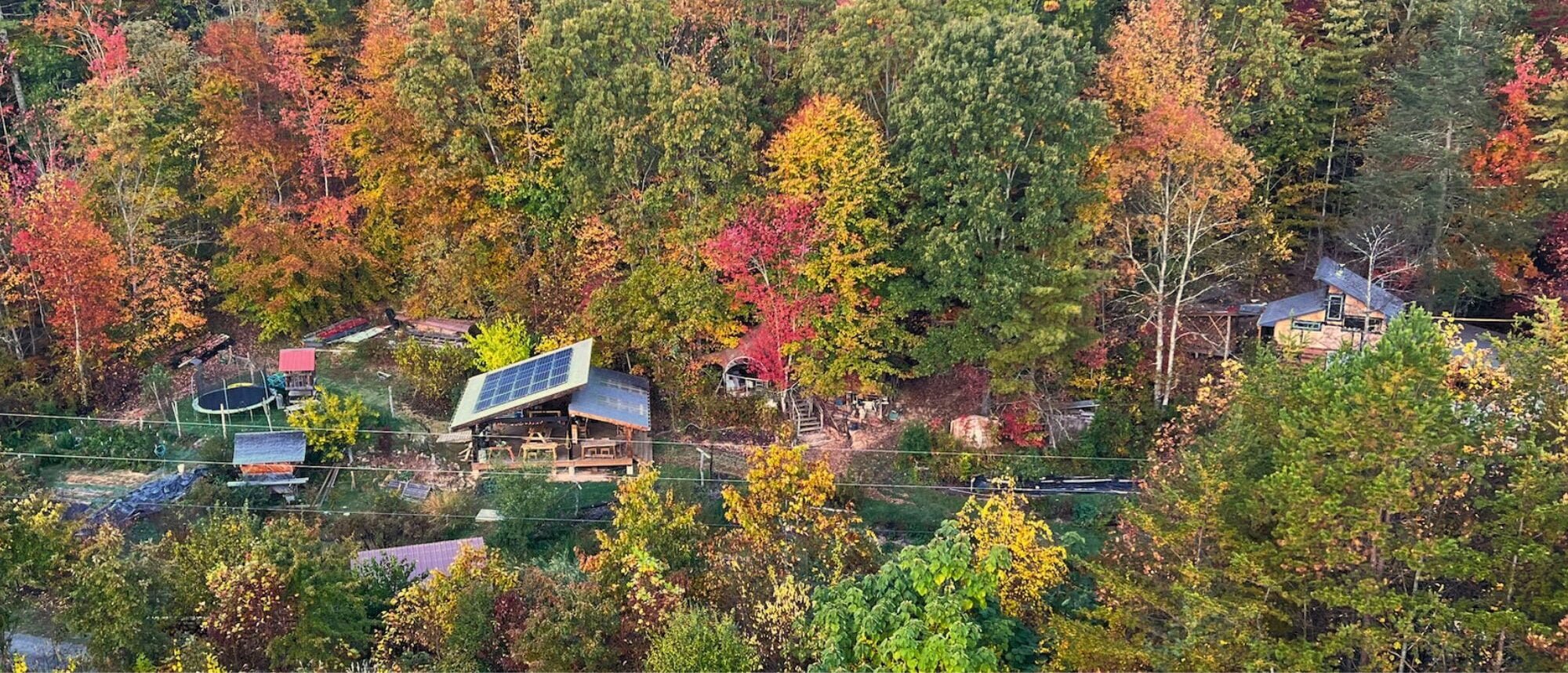

Our Permaculture and Homestead School
This campus is a bustling creekside landscape with gorgeous mountain views, a breathtaking timber-framed pavilion classroom, spacious covered open-air wood shops for learning building and carpentry in all weather, plus other lovely features. It’s bustling with energy as we engage in conversation between its innate features and our desires for the school.
Earthaven is a beautiful and unique 330-acre permaculture-based intentional community about 45 minutes from Asheville, NC that was founded in 1995.
At each of our campuses, you’ll see handmade structures that are whimsical, beautiful, and different from your typical home or classroom. We have outdoor showers and permitted outhouses or port-o-johns instead of traditional bathrooms (no flush toilets), along with outdoor kitchens.
Campsites are available to our students for free. Most are a short walk from parking areas. In-car camping can also happen at all of our campuses. Each campus is rich with abundant trees from which to hang a hammock. Some paid accommodations are available, too. Read our page on “Planning Your Trip” for more details on these, along with transportation options and a video tour of the campus facilities.
